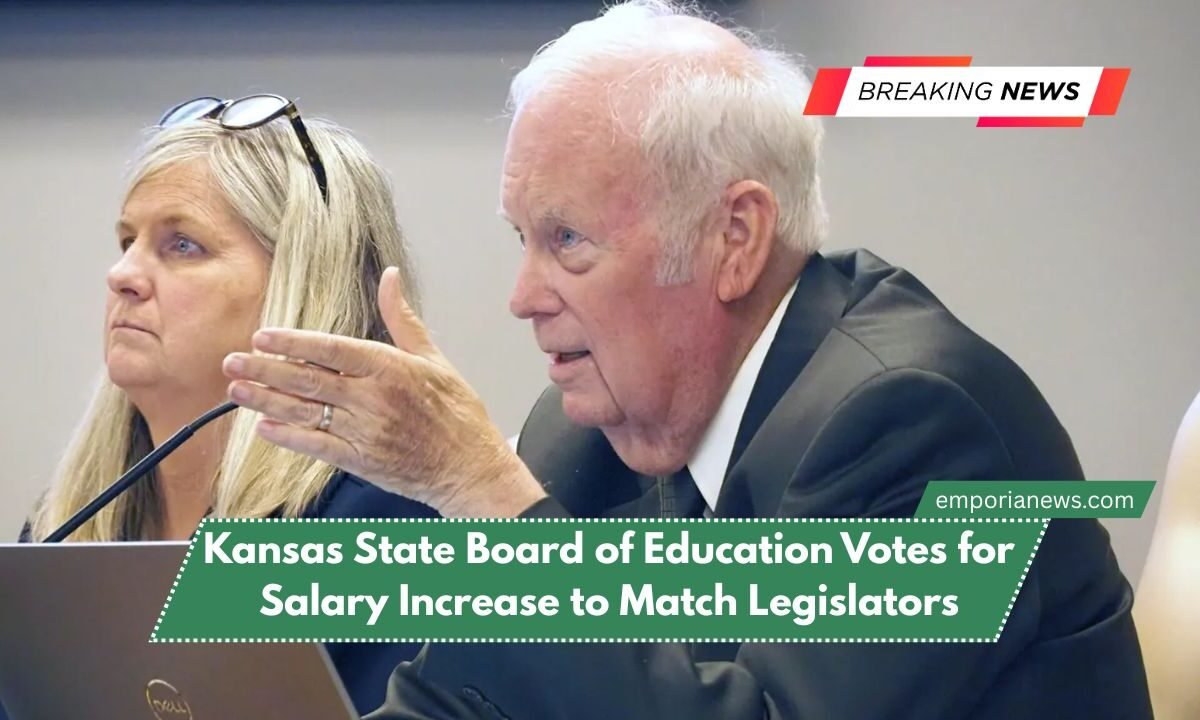TOPEKA, Kansas — The Kansas State Board of Education has voted overwhelmingly to raise its members’ salaries to match those of state legislators, restoring a long-standing parity disrupted by recent legislative raises.
In a 9-1 vote, the board approved a request for approximately $126,000, effective July 1, 2026, to cover compensation for its 10 members.
This move comes after legislators doubled their own pay earlier this year, leaving board members behind despite their similar levels of public service.
Why the Raise? A Matter of Principle and Future Representation
While some board members admitted they personally didn’t need a raise, they emphasized the importance of equitable pay for future officeholders.
Many saw this decision as a step toward encouraging more diverse and younger candidates to consider running for the board.
Beryl New, a former educator from Topeka, stressed the broader implications:
“Future board members may rely on this pay. It’s about ensuring that their work is valued, just as a legislator’s is.”
Jim Porter, a veteran administrator from Fredonia, echoed these sentiments, stating:
“It’s not about me — it’s about the board’s future. We need younger voices who can serve long-term.”
Betty Arnold, a former state auditor from Wichita, noted that education leadership roles often go underappreciated and underfunded, further limiting who can realistically hold them.
“This helps open doors to more people who care about education but can’t afford to serve,” she said.
Understanding the Financial Gap
Currently, Kansas State Board of Education members receive $88.66 per day plus a daily subsistence allowance of $166.
However, Kansas legislators now earn $43,000 annually, with a 4.4% increase already scheduled for the upcoming year.
The board’s pay was historically aligned with lawmakers’ until legislators approved their own pay hike in 2024.
That change went into effect in January, thanks to a recommendation from a commission established by the Legislature.
The same legislative session also passed a law enabling the education board to set its own compensation moving forward.
Board Members Serve Large Constituencies
According to Frank Harwood, deputy commissioner of education, each board member represents about 270,000 residents, an area equivalent to four Kansas Senate districts.
He questioned whether the same rationale used for legislative pay increases—attracting better candidates through higher salaries—should apply to board members. The board largely agreed.
Context: Budget Constraints and Federal Delays
The vote comes at a time when the Kansas State Department of Education (KSDE) is facing a tight budget and rising operational costs.
The budget passed by lawmakers left little room for flexibility, prompting the board to approve several budget enhancement requests.
One such request ensures the department can continue paying rent for its leased office space. Complicating matters further, the U.S. Department of Education is currently withholding $42.9 million in federal funding from Kansas.
Not Everyone in Agreement
Despite broad support, Debby Potter, a conservative member from the Great Plains, voted against the pay increase. Earlier that day, she also voted to reduce funding for teacher professional development.
“If I’m okay with cutting professional development, I’m okay with cutting board pay too,” she argued.
Board Chair Cathy Hopkins strongly disagreed.
“I lobbied the Legislature for this raise earlier this year. This is a matter of principle,” she said.
A Longstanding Battle for Respect
Melanie Haas, a board member from Overland Park, reminded colleagues of a 2022 remark from Senate President Ty Masterson, who labeled the board “monolithic” during a redistricting effort that favored more conservative candidates.
According to Haas, such commentary exemplifies a larger pattern of disrespect toward the board and its role in shaping Kansas education.
Jim Porter added that the board’s lack of parity with legislators symbolized an ongoing disregard:
“This isn’t just about money — it’s about respect for public education and those who serve it.”
The Kansas State Board of Education’s decision to raise member salaries to match those of state legislators marks a pivotal moment in its ongoing push for recognition, fairness, and future inclusivity.
With increasing demands and broad constituencies, board members believe this move is necessary to ensure qualified and diverse candidates can afford to serve.
As Kansas grapples with budget constraints and federal funding delays, this pay adjustment is seen as a strategic investment in the future of public education governance.




